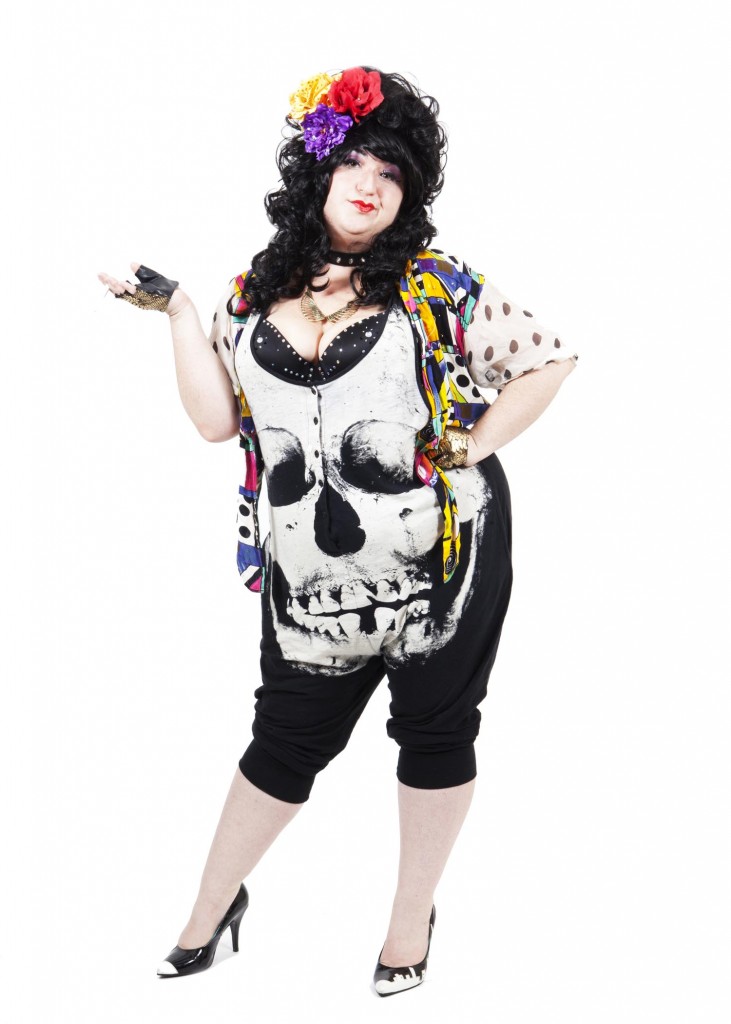By: Maggie Freleng, NYC, USA, SSH Correspondent
I met Fancy Feast, a two and a half year burlesque dancer and sex educator, at Murray Hill’s annual Miss Lez Pageant, , an alternative beauty pageant for queer womyn. In part one of my interview with the fearless, fierce Feast, she explained how burlesque is a way for her to dictate how she feels about herself and her body in a positive way to combat the powerlessness she feels being harassed on the street.
In continuation, she explained how herself and many other burlesque dancers are frustrated they are not able to perform their sexuality in non burlesque settings. For example, not having to be concerned with covering up on the street and feeling comfortable and safe no matter what they are wearing.
“Burlesque is always going to be safe and comfortable for me, it offers an outlet to experience joy and pleasure with my body in a public way without fearing violence and reproach.”
Fancy Feast explained a recent incident in the burlesque community where a male fan posted on a burlesque dancers status that she should take unwanted comments as a compliment because she’s beautiful person and should be flattered by the attention.
“Performers analyzed and dismantled the ways this person was thinking…anybody who can’t separate a sexualized performance from the rest of one’s daily experience is really oversimplifying things,” she told me.
“The two experiences are not at all to measure and the two come with their own different set of rules. I am very lucky to work in an industry where there are so many extraordinary people in charge of their own images and own sexuality who are able to call the shots when it deviates from that.”
In Part 1 of the interview, I explained Fancy Feasts nickel idea –setting aside a nickel to be donated to anti-violence shelters every time she is street harassed — as a way for her to mark these constant occasions and make sure something good can come from the bad.
Fancy Feast explained the time she saw NPR was doing a show on street harassment and were asking for individual stories. Fancy Feast thought this was ridiculous.
“It was a way of saying that there was just one experience that stood out when really it is so continual,” she said.
So she wrote to NPR:
“I wish I had “a story” about being harassed on the street, as if it were some kind of discrete experience that stands out as exceptional. It’s not like that. Men say things to me all the time. I’m hot or I’m fat but they’d fuck me anyway, they’d tear me up or hit it from the back. Men touch me too. With their hands, their eyes, erections pressing into my back on crowded subways or clubs. It takes only my most primitive brain to discern what is a compliment and what is not. The men who presume otherwise, saying that women ought to be flattered by these behaviors, assume women to be simpleminded enough not to tell the difference. The difference between “Hey, awesome necklace!” and “You look good enough to get raped.” But the other thing is: don’t compliment me. Interrupting my day to tell me that you like the shape of my dress or the body underneath it asserts that your opinion about me matters. Interrupting a woman to comment on her body or sexuality reinforces that she has no right to public space, to move freely and without comment. The men who assume I will be flattered by sexual remarks from strangers do not understand the reality of living in a woman’s body, the implicit and explicit threats we experience, the keys poised between our knuckles on the way home — just in case.
I wish I had “a story”, but I have thousands, and they get lost or metabolized in the space of a day.These days I set aside a nickel for every time I am harassed on the street. I wanted something to mark the occasion, to not let it simply vanish. I’m donating that money to a women’s anti-violence shelter, so something good can come from something ugly.”
NPR never responded to her story. However, Fancy Feast didn’t write to have her story told, she just wanted to let it be known that for so many people harassment is not just one story, it is a collection of daily, life-long experiences that we just learn and are told to deal with and take as compliments.
We shouldn’t have to deal with street harassment–it needs to end. But in the meantime, while we patiently wait for legislatures and society to finally realize we are suffering, we will find other ways to to reclaim our bodies and sexualities how we want them to be perceived.
For some of us, that is being an over-the-top sex-kitten in a leather harness shaking it on stage.
Maggie is a Brooklyn based freelance writer and photographer focusing on social justice and women’s issues. She currently writes for Vitamin W. Maggie graduated with a B.A in Journalism and English from the University of Massachusetts, Amherst in 2011, concentrating on dystopian literature. You can read more of her writing on her blog or follow her on Twitter, @dixiy89.



 My name is Surayya I. Diggs, I am a recent graduate of
My name is Surayya I. Diggs, I am a recent graduate of 

